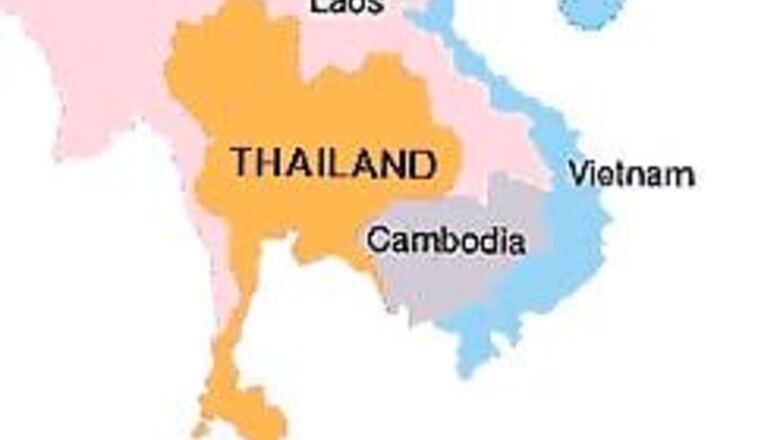
views
Dr Bhaskar Dasgupta
Thailand has had a long history of military coups since absolute monarchy ended way back in 1932. But since 1992, after widespread protests, democratic rule was established and it seemed that the time has come for liberal democracy to come into play in this idyllic South-East Asian country. But on September 19, 2006, the military came back and is now ruling Thailand again. The early reports suggest the military government is promising early return to civilian rule, but I am not so sure. This is why.
Military coups generally happen because of two ostensible reasons. Either there is a breakdown in law and order/civil society in various guises (political, religious, corruption, social, economic, etc.), or there is a direct security threat. The implicit reason might be the ambition of a military chief. In this particular case, it seems the extremely uncertain political situation, huge corruption, selloff of state assets and the simmering insurgency in southern Thailand lead to the military taking over.
The King is noted for his hands-off approach to Thai society and politics, which may be a reason why he is so revered. I do not think he will stop the military or ask them to return to the barracks. I mean, why would he suddenly start now when he didn't do anything much about the previous military coups? But what are the chances of the military returning to the barracks after running the country in the interim and then leading in a civilian government? I would posit low to middling.
The main issue will be the insurgency in Southern Thailand, which is slowly gathering pace. This column has talked about this insurgency in 2005 (http://piquancy.blogspot.com/2005/03/thailand-facing-muslim-insurgency-to.html) and warned that strong-arm tactics will backfire. As predicted, the insurgency has gained pace with increased bombings, assassinations and murders, etc. The Prime Minister, Thaksin Shinawatra, has been blowing hot and cold about how to handle this insurgency. Sometimes he talked about
rapprochement and peace talks; while on the other hand, a heavy-handed crackdown happened with even teachers being given weapons training.
Given this scenario, the natural inclination of the military government will be to crack down even harder. The reports coming out of Thailand all say the military has been grumbling about the light handed way the insurgency has been handled. The King will not interfere and the opposition parties are fragmented and a joke. The ruling party is tainted massively with corruption and national security will be a big drumbeat, so the military can claim to be stepping in to take care of corruption and the political confusion.
The public supports the coup if one can believe the comments left on the BBC website http://news.bbc.co.uk/2/hi/asia-pacific/5361512.stm and you can bet your bottom Baht that the military would not interfere in normal
economic life of normal citizens.
ASEAN will not say much, heck, they won't say anything at all. The neighbours won't raise a peep; as Thailand is surrounded with liberal democratic luminaries such as Myanmar, Cambodia, Laos and Malaysia (sarcasm intended!). The UN will talk and talk, the USA will express concern, but will also keep quiet, the EU will also express its concern and set up a foreign policy committee to discuss, India and China will say it is an internal matter, while Myanmar (erstwhile Burma) will send an invite to their fellow generals for dinner.
So, bottom line, expect to see the beribboned generals in power for a long time to come.
All this to be taken with a grain of salt!
(Dr Bhaskar Dasgupta works in London in various capacities in the financial sector. He has worked and travelled widely around the world. Currently, he is working on his second PhD in International Relations and Terrorism.)




















Comments
0 comment